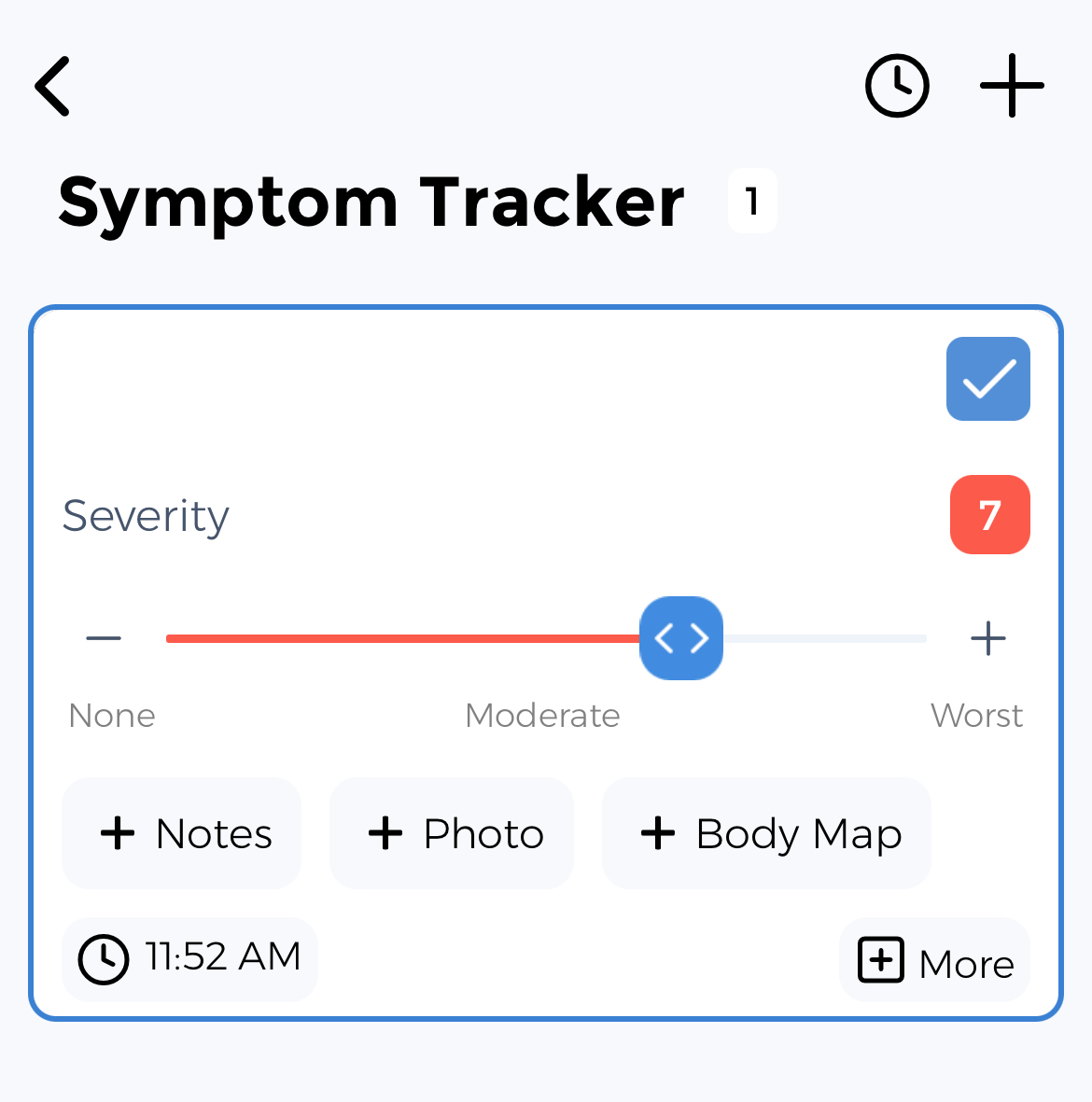High Cholesterol (Hyperlipidemia) Symptom Tracker: Your Health Assistant
Living with High Cholesterol (Hyperlipidemia) means dealing with Usually asymptomatic, Can contribute to symptoms of related conditions like angina (chest pain) or stroke/TIA symptoms. But here's the truth: Data is your most powerful tool. Every logged symptom reveals patterns—so you can take informed action.
High cholesterol means having high levels of lipids (fats), including cholesterol and triglycerides, in the blood. This increases the risk of fatty deposits (plaques) building up in arteries, leading to heart disease and stroke. Tracking lipid levels, medication adherence, diet, and exercise is key.
Track Your High Cholesterol (Hyperlipidemia) Treatments
Tracking how these common treatments affect your symptoms can help you and your healthcare provider optimize your care plan:
Our tracker helps you monitor when you take medications and how they affect your symptoms over time.
Standardized High Cholesterol (Hyperlipidemia) Assessments
Complete these evidence-based assessments in the App to measure your severity and monitor your progress:
⚡ Knowledge Is Your Superpower
The difference between feeling overwhelmed by High Cholesterol (Hyperlipidemia) and feeling in control starts with data. When you track your symptoms, you transform uncertainty into clarity. Every data point brings you closer to understanding your unique patterns.
It's free to try for anyone—whether you're managing your own condition, supporting a child, helping an aging parent, or assisting a partner. Our tracker adapts to your specific role in the health journey.
How the CareClinic High Cholesterol Symptom Tracker Adapts to Your Needs
Adults
Caregivers
Parents of Children
Young Adults
Your Complete High Cholesterol (Hyperlipidemia) Management Toolkit
Uncover Patterns & Insights
Map your High Cholesterol (Hyperlipidemia) symptoms like a detective solving a case.
Understand Your Medication's Impact
Turn guesswork into strategy. See how treatments affect your well-being with clear health insights.
Objectively Measure Your Progress
Use clinically validated tools to objectively measure your progress.
Other Tools You May Like...
Also Supports Other Conditions Like
Coronary Artery Disease Tracker
Coronary Artery Disease warriors use our tracker to monitor chest pain, shortness of breath.
Stroke Tracker
Stroke warriors use our tracker to monitor numbness or weakness, confusion.
Heart Attack (Myocardial Infarction) Tracker
Heart Attack (Myocardial Infarction) warriors use our tracker to monitor chest pain or discomfort (pressure, squeezing, fullness, or pain), pain or discomfort in one or both arms, the back, neck, jaw, or stomach.
Atherosclerosis Tracker
Atherosclerosis warriors use our tracker to monitor chest pain (angina), shortness of breath.
Success Stories from Our Community
"This tracker doesn't just collect data - it provides insights. I confirmed that I could finally differentiate between different types of Can contribute to symptoms of related conditions like angina (chest pain) or stroke/TIA symptoms, which helped me make better daily decisions."
"I appreciate how the tracker helps me manage multiple aspects of my High Cholesterol (Hyperlipidemia). The visual charts in the medication tracker helped my doctor understand my experience, and it also helps me communicate my symptoms precisely."
Take Control of Your High Cholesterol (Hyperlipidemia) Journey
Transform from feeling like a passive patient to becoming an informed self-advocate. Join thousands who've discovered new insights about their condition.
Designed by people who understand the daily challenges of managing chronic conditions, we're here to support you and your ❤️ ones.
Download Your High Cholesterol Tracker NowYour Data is Protected
Private & Secure
HIPAA Compliant
GDPR Compliant
Never Sell Data
Your data is yours: You get full control over who can view your information. CareClinic keeps all your data secure and encrypted.
References based on studies by:

